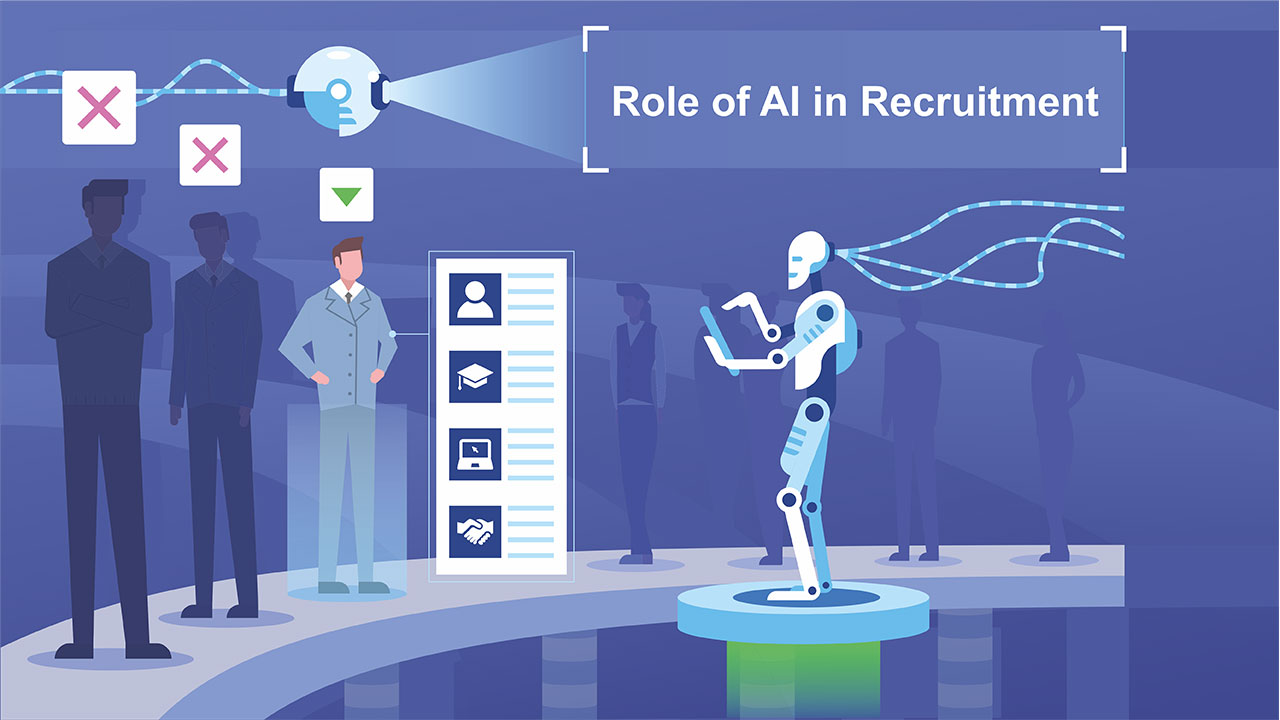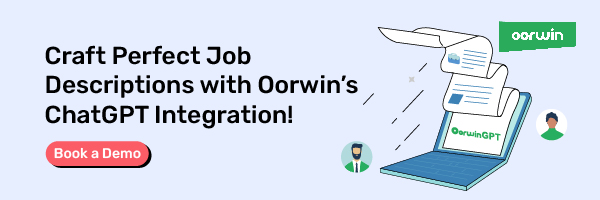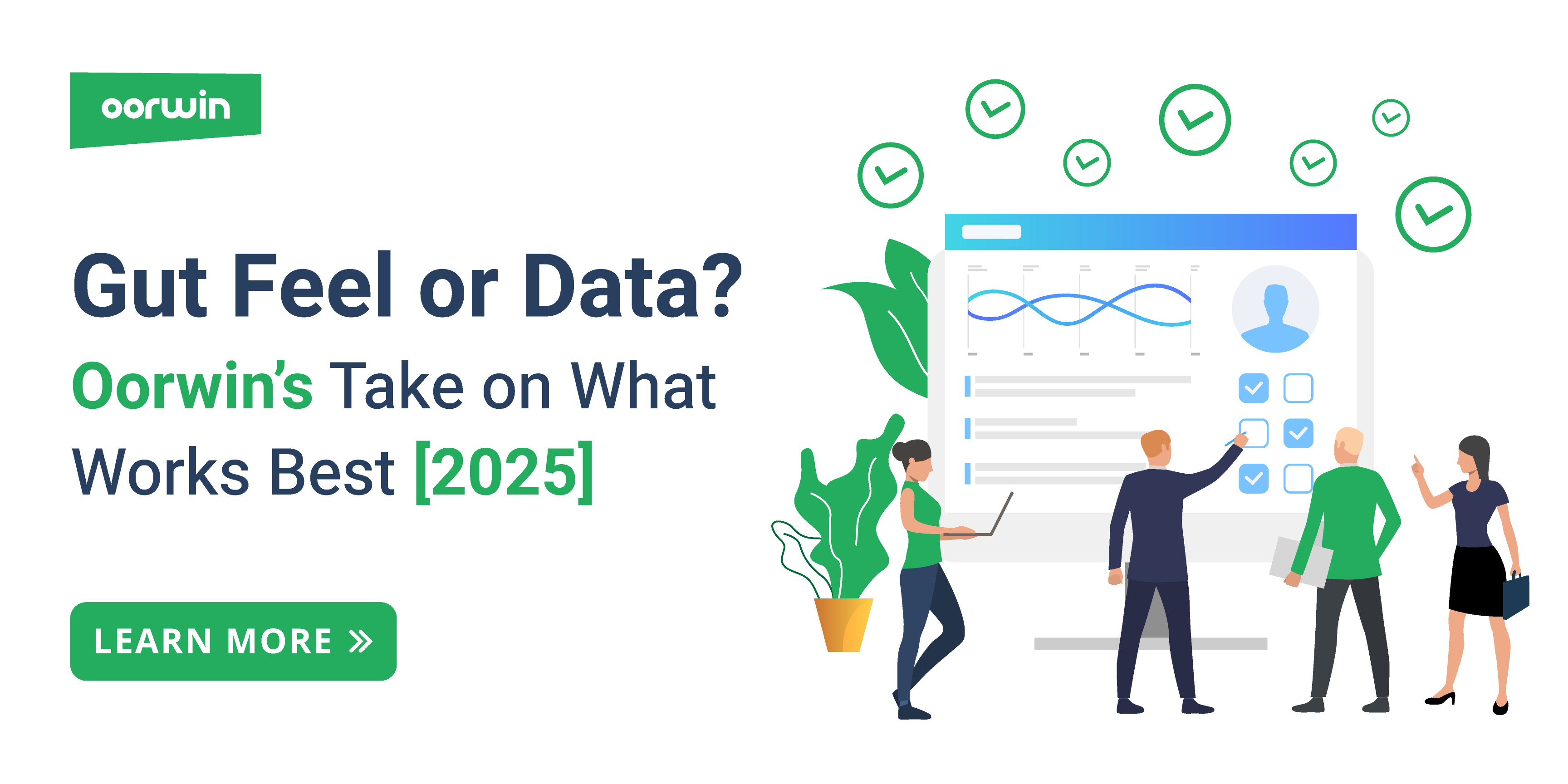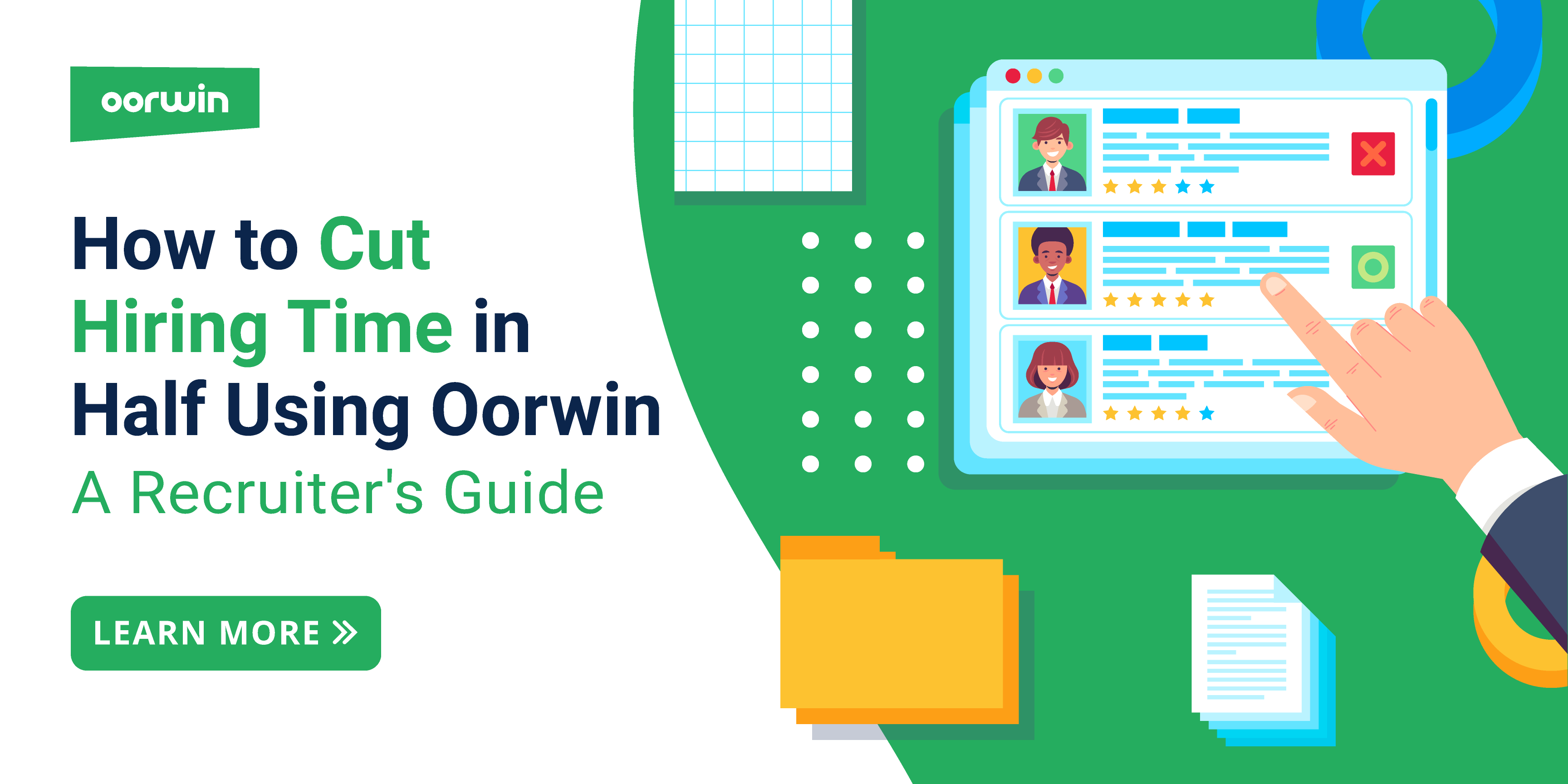A Comprehensive Guide to Role of AI in Recruitment
Oorwin
9min read / 12 Dec 2018

Related Articles
AI recruitment is a rising technology that can analyze big data quickly and estimate the available options. AI technologies are widely being used not just in IT but also in research and development and marketing. It’s no surprise that enterprises have started using AI in recruitment solutions in HR processes, especially recruitment, in an attempt to automate the recruitment process and explore new means of hiring the best talent.
The Rising Need for AI in Recruitment
Artificial Intelligence (AI) in recruitment is an emerging class of HR technology developed to reduce or even eliminate redundant and tiring recruitment activities such as manual resume screening. One of the biggest challenges in AI in recruitment is screening resumes smartly and efficiently in the field of talent acquisition. According to research by Ideal, an HR technology and solutions advocate, 52% of talent acquisition leaders reported the difficulty of identifying the right candidates from a large pool as the hardest part of the process.
What is the Role of AI in Recruitment?
Artificial Intelligence in Recruitment (AI) integrates the ability to learn, think, and decide within software systems and machines. This technology enables these machines to mimic human abilities and think like humans. Artificial Intelligence (AI) integrates the ability to learn, think, and decide within software systems and machines so that they work smartly in diverse situations.
The traditional recruitment process is based on identifying the right candidates out of hundreds or even thousands of applications. This might take several weeks, leaving both the HR teams and candidates frustrated and uncertain. Artificial intelligence in recruitment, however, is changing that.
AI recruitment software thrives on huge volumes of data, integrating analytics and virtual assistants to analyze the information and track the trial of all proceedings of an interaction that a potential candidate experienced with the company. The AI software processes the resumes and analyzes them on various parameters to decide if the applicant is the right fit for the position and the company. Artificial Intelligence in Recruitment also offers algorithms that test applicants on various intangible factors like emotional status and work ethics by providing real tasks that they might be asked to perform once hired.
In terms of job posting, Artificial Intelligence (AI) in recruitment makes the job posting more qualitative, implying that there is no need for manual effort to constantly update the job postings, as AI can execute the same. The features also ensure that only the right candidates become part of the talent pool. Moreover, the passive candidates who might be a right fit for the company can be sent messages, thereby encouraging them to apply for a specific job.
Role of AI in Recruitment
In today’s fast-paced job market, the integration of artificial intelligence is reshaping recruitment, offering novel ways to identify and attract top talent while streamlining the hiring process. Let’s take a look down below-:
1. Automation of High-volume Tasks
AI automates high-volume recruitment tasks like resume screening, candidate sourcing, and interview scheduling. The best AI recruitment software seamlessly integrates with existing systems to automate recruitment workflows, reducing time-to-hire and minimizing the risk of losing top candidates to competitors.
As revealed in the Korn Ferry Global survey, considering responses from almost 800 HR professionals, 63% of recruiters consider Artificial Intelligence as a technology that is radically changing the way recruiting is done today.
2. Quality Hiring
The quality of hire has been a recruitment KPI black box because of the inability to close the data loop, i.e., losing the interaction with the applicant once he or she is hired. As HR data is now easier to gather, access, and analyze, the quality of hire is recruitment’s top KPI.
Artificial Intelligence in Recruitment provides recruiters and HR teams a way to make strategic, data-driven decisions about the recruitment process. It’s not just about using algorithms to analyze resumes, though—it’s about using machine learning to analyze the people who apply for jobs, predict what they’re looking for in their next role, and match them with opportunities that would be a fit.
According to one of the studies published on a blog, the early adopter organizations using AI in recruitment had their screening cost reduced by 75%, revenue per employee increased by 4%, and turnover decreased by 35%.
3. Enhanced Employee Experience
A strong AI in the recruitment and selection program can handle most of the candidate sourcing and contact, ensuring that candidates experience a smooth process.
Recruiter chatbots can answer candidate questions immediately, provide feedback and suggestions on a broad range of topics, and schedule interviews, assuring enhanced employee experience and satisfaction.
4. Improved Candidate Screening
AI recruitment tools are a game-changer for recruitment. It’s not just about automating the screening process, it’s about screening better than ever before.
AI can find candidates that might have slipped through the cracks and match them to your job description better than you ever could on your own.
AI-powered applicant tracking systems ensure that high-quality candidates are identified immediately, so only qualified individuals are brought in for interviews. And that means less time wasted on candidates who aren’t going to work out anyway.
5. Providing Assistance while Interviewing
The recruiting process is complicated and stressful. Some of the most important moments in the process involve interviewing candidates. Some AI recruitment and selection tools enable you to conduct an automated interview before inviting a candidate in for an in-person meeting.
6. Onboarding
Onboarding is the process of integrating new employees into your organization. It involves training, coaching, and onboarding software. A good AI recruitment tool will help you to streamline this process by providing automated training modules that cover topics such as culture fit and company values. You can save time and money by using artificial intelligence in recruitment to provide these resources rather than developing them yourself or hiring a third-party provider.
7. Integration of Analytics
By creating valuable candidates’ insights, the AI recruitment software helps recruiters and HR teams to determine new hires based on their skills and put them in the right position to make the most of their talent. This approach not only boosts productivity but also enhances a candidate’s skills. Using artificial intelligence in recruitment gives more accurate results via big data analytics, helping you make more informed decisions.
8. Targeted Ads
The capabilities of Artificial intelligence in recruitment also extend to marketing, where it can post targeted ads that are seen only by the right people at the right time based on their online activity history. AI recruitment software can also analyze the browsing history of applicants to use it for decision-making. Systems of data management processing let you define a target and look for applicants matching your objectives.
9. Chatbots
Chatbots are indeed one of the most promising features of AI technology. They bring more information to the process and interact with candidates, answering basic queries. Advanced chatbots used in AI recruitment and selection not only interact with candidates but also scrutinize their responses using Natural Language Processing, which lets them evaluate if a candidate demonstrates the required skill sets.
Challenges and Limitations of AI in Recruitment
Algorithmic Bias:
AI algorithms can unintentionally perpetuate biases from historical hiring data, leading to unfair discrimination based on factors like gender, race, or age. This bias can result in discriminatory hiring practices and hinder diversity and inclusion efforts within organizations.
Data Quality and Bias:
Inaccurate or biased training data can lead to flawed AI decisions in recruitment. It is crucial to ensure that the data used for AI models is both representative and free from biases, as these can skew hiring outcomes and perpetuate inequalities.
Lack of Transparency:
The complexity of AI systems can obscure their decision-making processes, making it difficult for stakeholders to understand how and why certain decisions are made. This lack of transparency can erode trust and hinder compliance with ethical and legal standards in hiring practices.
Over-reliance on Technology:
Over-reliance on AI in recruitment can result in a disconnect between recruiters and candidates. Excessive automation can reduce the human touch, potentially affecting the candidate experience. Striking the right balance between technology and human interaction is essential for successful recruitment.
Ethical Concerns:
The use of AI in recruitment raises ethical concerns, including issues related to privacy, consent, and the dehumanization of the hiring process. It’s essential to navigate these concerns carefully and ensure that AI is employed in a way that respects the rights and dignity of candidates.
Regulatory Compliance:
Recruitment practices are subject to various local and international regulations. Ensuring that AI systems adhere to these regulations can be a significant challenge, as it involves navigating a complex landscape of legal requirements and data protection laws.
Constant Monitoring and Updating
AI models require continuous monitoring and updating to remain effective and free from bias. This ongoing effort and resource allocation are necessary to ensure that AI-powered recruitment remains fair and reliable throughout its use.
Future-Proof Your Recruitment Strategy with Oorwin’s AI Solutions
Though AI technology is discovering almost all business spheres, recruiters are still uncertain thinking whether the machines are perfect for this job. Others are concerned about Artificial Intelligence replacing their jobs. Somehow, the latter is right to a certain extent, as machines demonstrate better abilities for doing repetitive tasks than humans.
On the other hand, it is the key reason behind the adoption of Artificial Intelligence in recruitment and selection. Nonetheless, it is important to recognize that AI’s role in recruitment will be seen more in the near future.
Ready to future-proof your recruitment strategy? Explore Oorwin’s cutting-edge AI solutions to streamline your hiring process, boost efficiency, and make data-driven decisions for a successful and sustainable talent acquisition journey.
Frequently Asked Questions
How does AI assist in the recruitment process?
AI assists in recruitment by automating various tasks such as resume screening, candidate sourcing, and interview scheduling. It can also analyze large datasets to identify top candidates, match job descriptions with resumes, and even conduct initial interviews through chatbots or video interviews.
What are the potential benefits of using AI in recruitment and selection?
Using AI in recruitment can offer several benefits, including increased efficiency and cost savings, improved candidate experience through quicker responses and personalized interactions, reduced bias in the hiring process, and the ability to identify the best-fit candidates more accurately.
Are there any ethical concerns related to AI recruitment?
Yes, there are ethical concerns associated with AI in recruitment. These include issues related to bias in AI algorithms, data privacy, and transparency. AI systems can inadvertently perpetuate biases present in historical data, leading to discriminatory hiring practices.
Popular Articles..
Blog

9min read / 25-Jun-2025
Master Effective Interview Techniques with Oorwin: A Step-by-Step Recruiter’s Guide
Blog
Blog
Get the latest Oorwin releases, updates, success stories & industry news
 Back
Back

